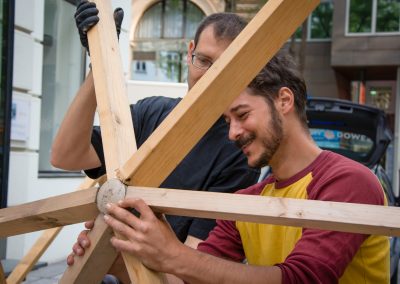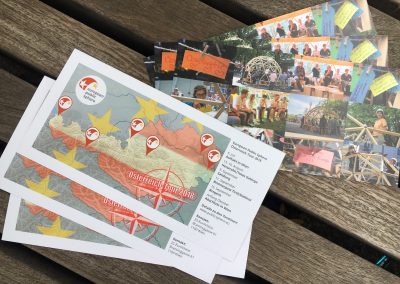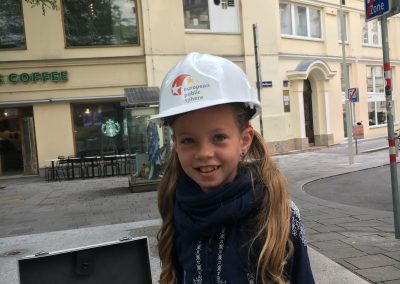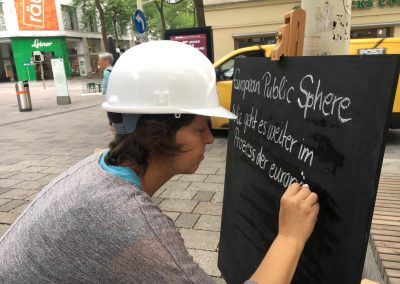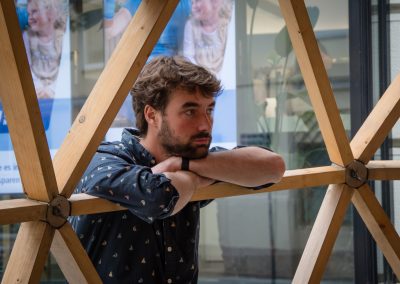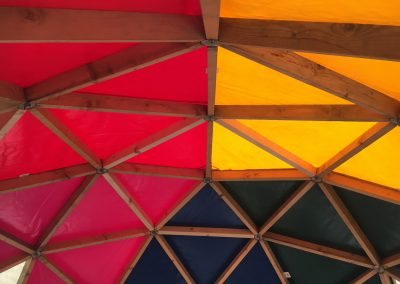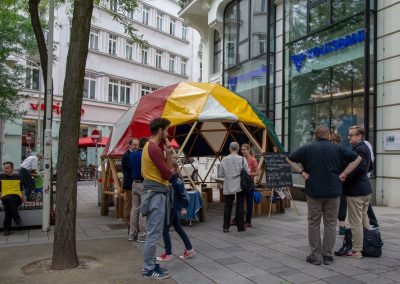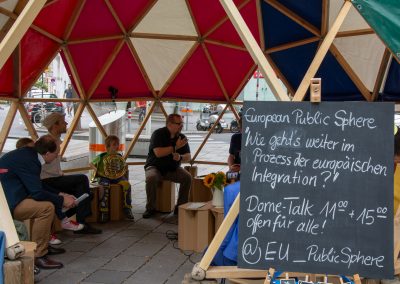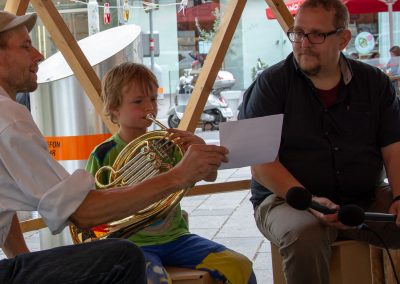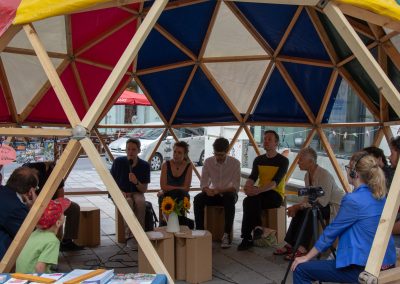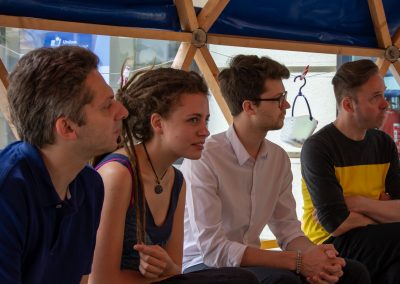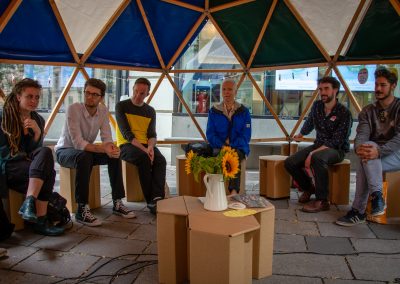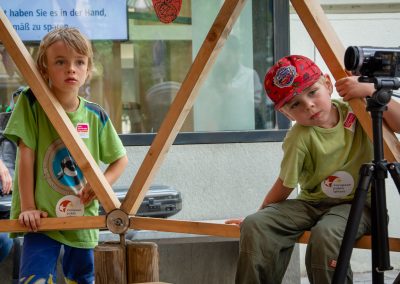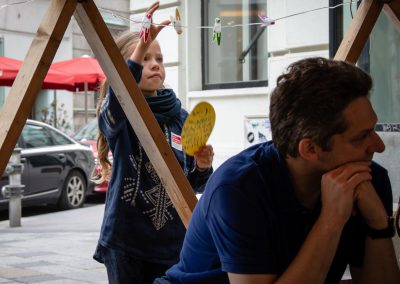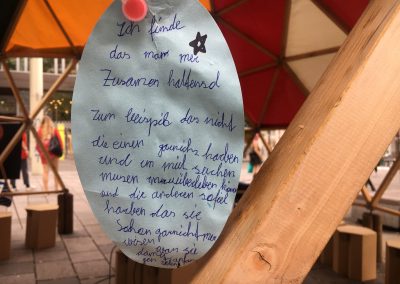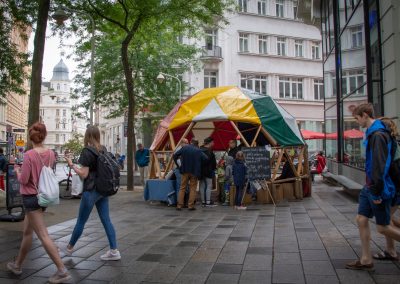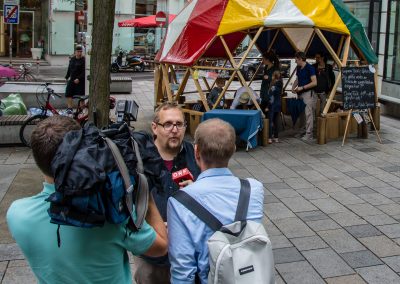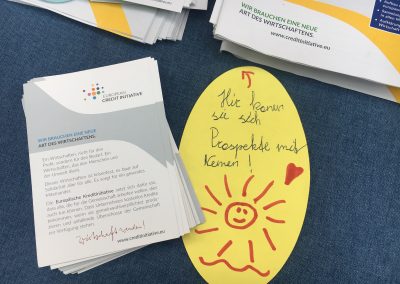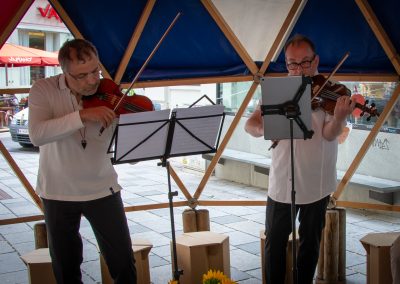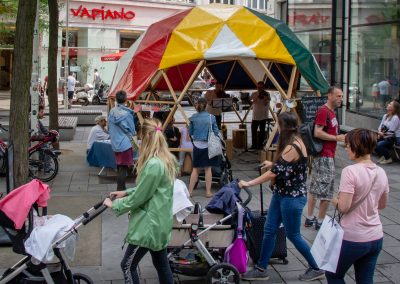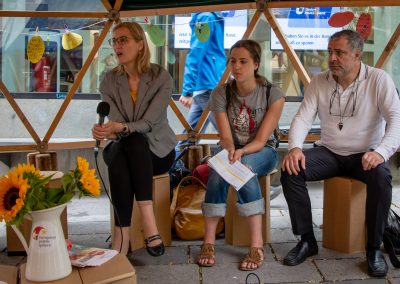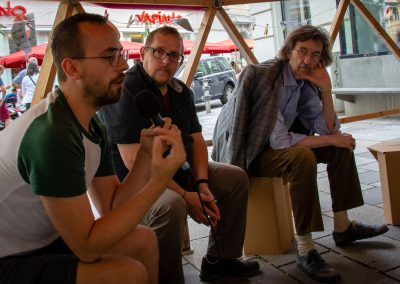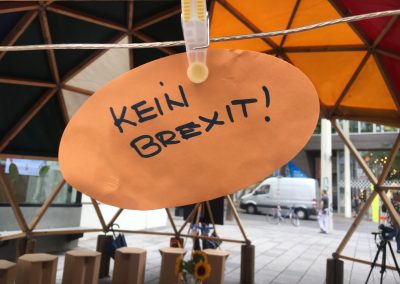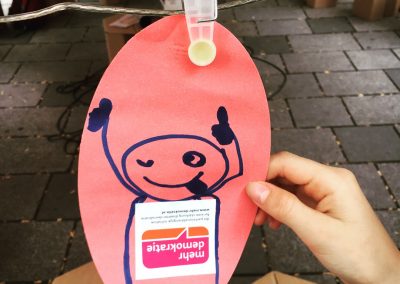Kick-off in Austria
Even though our event is accompanied by far less media attention than the official events and working meetings with the Austrian government, we are nevertheless present with our open offer for talks for all and intend to realise two exciting dome talks.
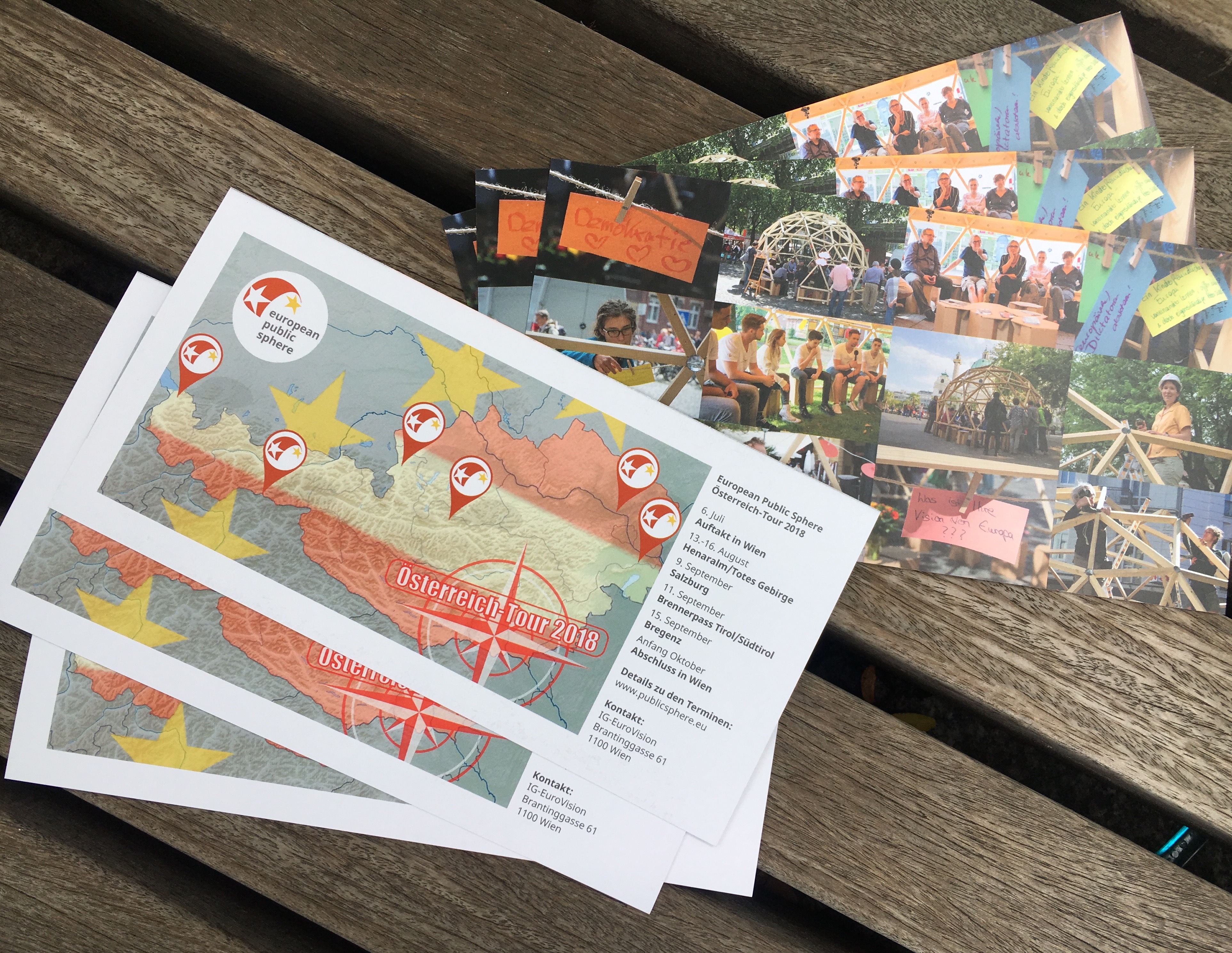
Now a dense discussion about the European integration process between finalisation and dissolution unfolds: Has the integration process come to an end after 70 years, or does it need to be thoroughly re-examined?
Is there not a need for a new constitutional process for the European Union, this time with more citizen participation? The crucial question here would be whether this is just a discussion process or, ultimately, a social decision-making process.
Time and again we come back to the topic of identity and structure in Europe: Where do I root my identity? Can humans be at home in superordinate structures or do these remain too abstract, so that they can only feel emotionally connected in a small cultural circle? How can I identify with the big Europe? Isn’t the identification-offer of, for example, a “constitutional patriotism” much too weak for this?
Are the identitary movements on the advance because it is not possible to connect emotionally with the greater, the superordinate and to establish a sustainable identity in it? And is it thus inevitable that identity can only be created through differentiation from what is foreign? Or can’t also be valid: “Who is here, is from here”?
One point that should also be mentioned is the tension between the individual and the community. To what extent do we actually need the basis of social structures? Can’t humans also empower themselves, so to speak, out of a “Just do it!”? It is quickly demonstrated where such an approach could lead without the social basis of the rule of law.
It turns out that the European Public Sphere’s approach to create open spaces for discussion meets a real need, that it is also about putting up with the other person of another opinion and about nevertheless treating him or her with respect.

During the time between the two Dome Talks, there were lively conversations with passers-by who curiously keep approaching the dome, but obviously don’t want to get involved in a conversation in the larger group. That way we hear in detail about the attitudes of two declared AFD voters from Bavaria, who refer to many years of experience in neighbouring European countries and who present themselves as progressive, emancipated women and self-confident citizens and at the same time show themselves full of unspeakable frustration towards “our Ms. Merkel” and full of resentment towards foreign fellow citizens and terrible empathylessness for people on the run.
On the one hand, the second dome focuses on the question of how Europe can be made tangible. What are the emotional and rational approaches to Europe and how are these two levels related to one another?
There is agreement that the two levels must play together. But there is the view that Europe must first be experienced at emotional level, for example through personal encounters with people from other countries, that friendship, fun and inspiration form the basis for a rational debate with the vital needs of the European Union. And also the approach that we first need clear ideas on how to deal with the refugee question, for example, is advocated for and that we then connect ourselves with it with our heart forces, in other words the opposite process. In any case, the need for a rational engagement with Europe is clear.
The answer to this anxious question was actually given to us by Friedrich Schiller in precisely this “Ode to Joy”, which – set to music by Ludwig van Beethoven – was given to us by the Council of Europe in 1972 as an anthem for Europe. Does it not indicate the direction in which our actions can unfold in order to build such a viable bridge?
“Joy, beautiful spark of the gods,
Daughter from Elysium,
we enter fire-drunk,
Heavenly, your sanctuary!
Your spells bind again,
which strictly divides fashion;
all men become brothers,
where your gentle wing is.”

